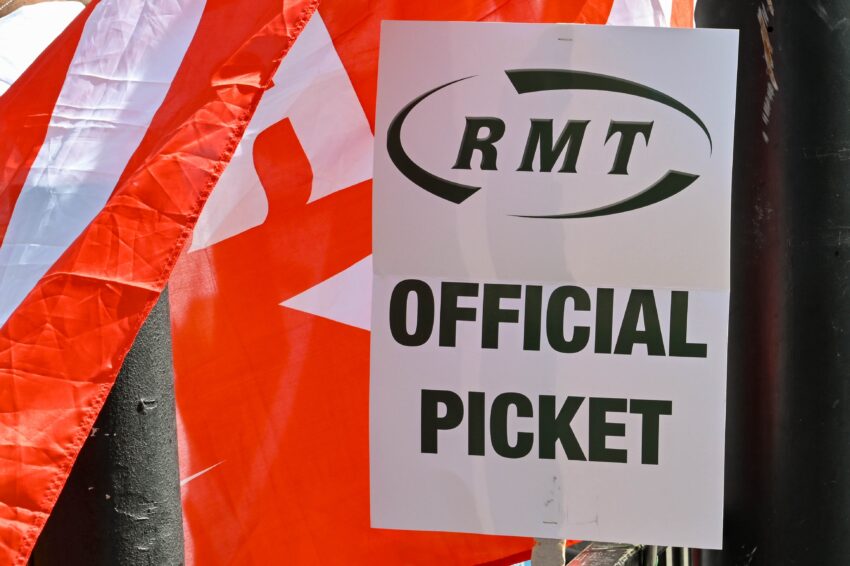Train passengers are facing more disruption, with only 20% of services set to run due to strike action.
Half of Britain’s lines will close on Thursday and Saturday as more than 45,000 rail workers walk out in a dispute over pay and terms.
Some routes will have no services, and where they are operating, trains will only run between 07:30 and 18:30 BST on both strike days.
Passengers are being told only to travel by train if necessary.
It is the latest in a series of summer strikes and will alter the travel plans for workers, festival goers and those heading to the cricket Test match at Lords in London.
A total of 4,300 services are expected to run across the country on Thursday and Saturday, according to Network Rail. This is the highest number yet during the series of national RMT union strikes.
However, it is still only just over 20% of usual service levels.
Some places, including Portsmouth, Swansea and Blackpool, will have no trains at all and there will be no services running north of Falkirk.
Services will also finish earlier. The last train from London to Edinburgh on Thursday, for example, will leave at 14:00, while the last train to Leeds will leave at 15:05.
Trains will also start later than usual on the days following strikes.
The involvement of Network Rail signal workers across England, Wales and Scotland makes the RMT strike particularly disruptive.
It is not possible to run trains without signallers, and only a fraction can run with the available contingency staffing. Network Rail owns and manages most of the UK’s rail infrastructure.
If customers are not able to travel on Thursday or Saturday, the Rail Delivery Group said they can use these tickets either the day before or up to and including 23 August. Otherwise customers will be able to change the ticket or claim a refund.
Thursday’s strikes involve members of the RMT union at 14 train operators, TSSA members at seven companies and Unite members at Network Rail.
Network Rail’s chief executive Andrew Haines described negotiations with unions as “slow” and “painful” and said there was “an absolute lack of clarity over what it would take for this strike to be called off”.
He told BBC Radio 4’s Today programme: “We’re desperate to bring this to a resolution in a way that is affordable for the country and which avoids the pain for my colleagues.”
Luke Chester, organising director at the TSSA, said: “The reality is that what we need to resolve this dispute is a pay rise which reflects the cost of living increase that is affecting most people in this country very severely.”
He added that union members “need job security” and “we require guarantees from employers that they’re not going to rip up people’s contracts of employment, they’re not going to change conditions of working in the way that we’ve seen, for example, at P&O”.
Meanwhile, on Friday both the London Underground and Overground will be affected by RMT strike action, in a separate dispute over pensions and pay.
Transport for London (TfL) says people should avoid the Tube, which will have little or no services running, and only use the rest of the network if essential.
Some bus services will also be affected as drivers take part in a strike called by the Unite union.


